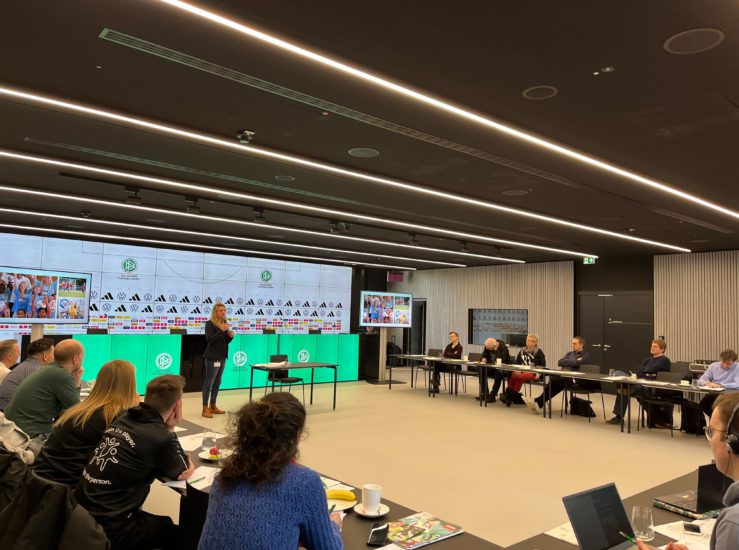Germany has a particular experience in receiving refugees: the country registered 441 805 asylum seekers on its territory in 2015, and 148 175 in 2021 (source: eurostat). However, the issues of getting used to a new culture and the social inclusion of these newcomers remain just as much of a challenge in the country. In this context, the DFB-Stiftung Egidius Braun, a branch of the German Football Association and a member of the FIRE+ project consortium, invited the clubs participating in its leadership programme as well as other local actors working with refugees to discuss the issues of inclusion in and through football.
Our Multiplier Sport Event was opened by Steffen Simon, Head of Public and Fan Affairs of the German Football Association, in the green press conference room, the well-known colours of the DFB. The floor was then given to the president of the German grassroots football club FC Motor Süd Neubrandenburg, Ulf Krömer. This football club from Northern Germany has an important role in promoting refugees’ inclusion through football. After telling the story of the club with the young refugees, Ulf Krömer proved to be very categorical in his words: the public authorities do not facilitate the inclusion of refugees in their host community, even though this host community is willing to welcome and integrate them. The president of FC Motor Süd Neubrandenburg gave the example of the lack of opportunities for language courses for newcomers. Mastering the local language remains crucial in the inclusion process. The club can be the bridge between the locals and the newcomers, but it must be supported. The funds allocated to grassroots clubs for their operation and for the organisation of social activities are still too poor. For Ulf Krömer, the football club is and must be much more than just a sporting environment. It is a social place, where members of a community can meet and forge ties together regardless of their background. Indeed, the football club has a myriad of opportunities to offer to refugees to facilitate their inclusion. Including them as volunteers is a perfect example of good practice. Within the FC Motor Süd Neubrandenburg, four squads are currently coached by coaches coming from six different countries.





